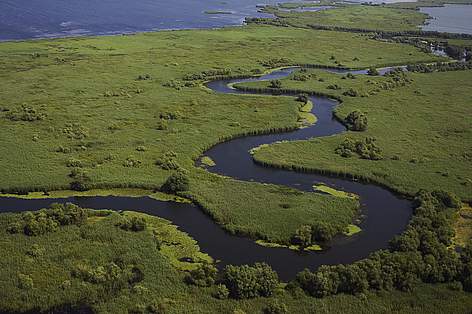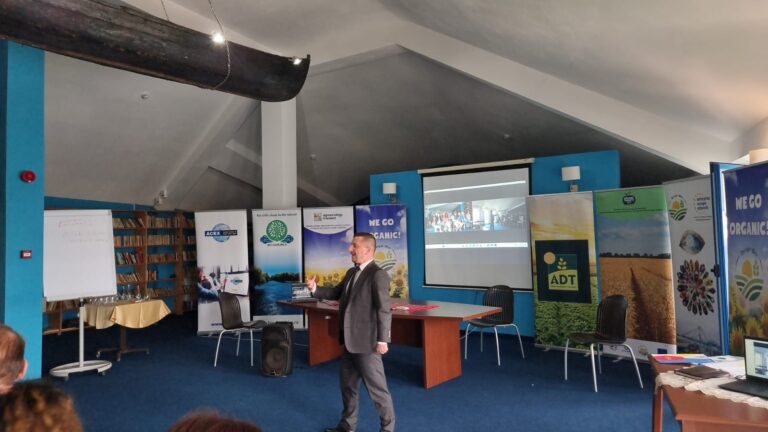In April this year, the Bio Danubius cluster held the first discussions on the application of private certified voluntary standards for agroecology, especially in the field crops.
The group investigated the key drivers and barriers to achieving indicator-based agroecological standards that contribute to the overall goal of combating climate change. The discussions helped to identify concerns about the development of the scheme and the support that farms would like to receive for their decision-making.
The topics addressed included a look at possible indicators focused on decarbonisation, institutional and operational aspects regarding the scheme organiser and process, as well as expressions of interest for the development of the scheme.
“Wet areas suitable for cereal crops along the Danube can become the first agroecological zone in Romania”, said project facilitator Dr Costin Lianu. “We were particularly concerned about how to analyse and apply the recommendations of the original SR 13595 agroecological standard, launched last year with the contribution of Inter-Bio and Spiru Haret University, through the openings offered by the Agroecology-TRANSECT project.
The Standard can be used as a reference for certification and is applicable to organically certified organisations that want to apply the principles of agroecology, but it can also be applied by organisations undergoing organic certification that want to apply the principles of agroecology.
Since the Standard includes a normative annex with forms and indicators for recording evidence of meeting the requirements, we interacted with farmers to see which indicators to adopt. In fact, what we do is a living laboratory in which we look for solutions during the project and after”, concluded Dr Lianu.



